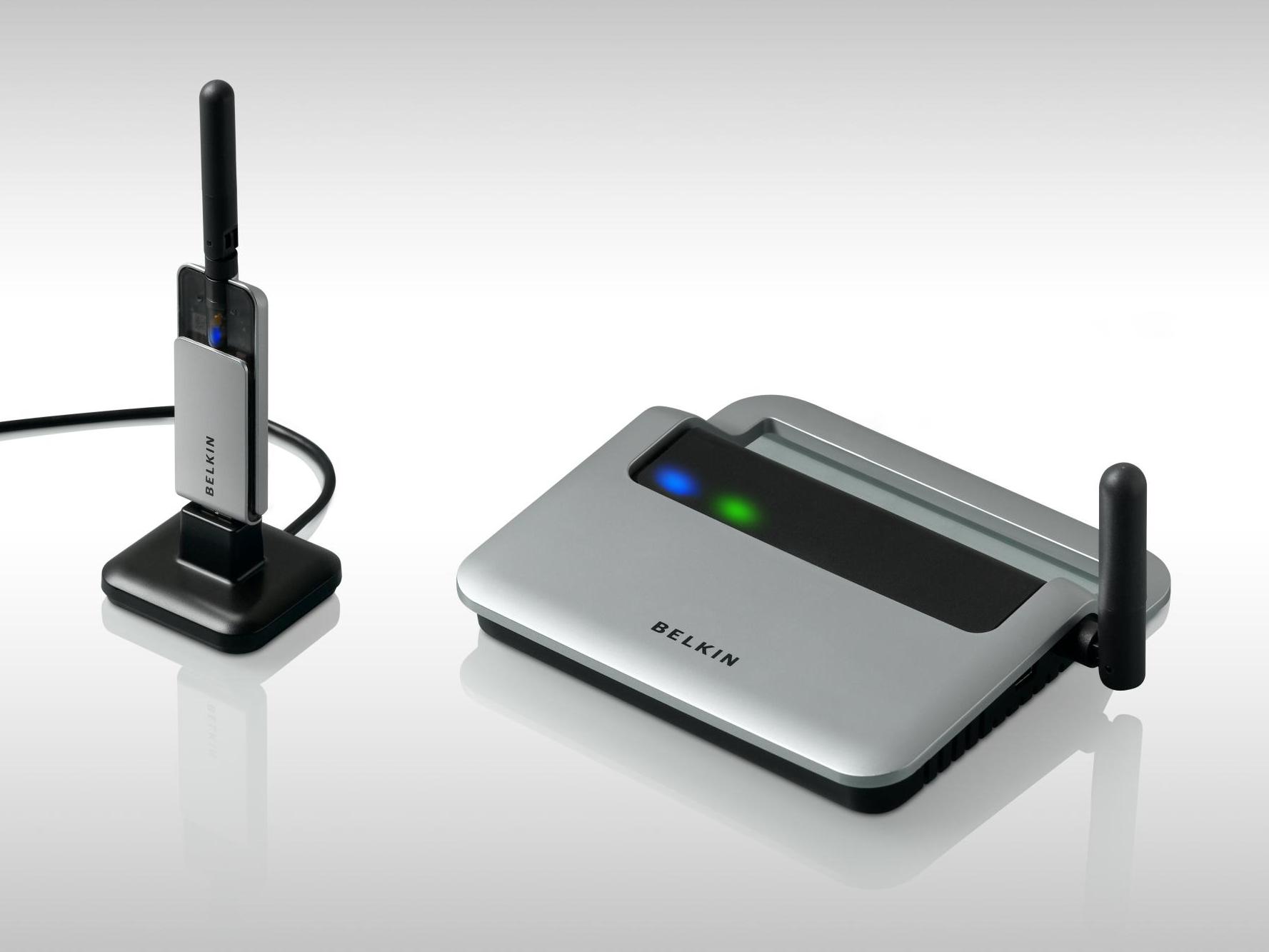Wireless USB: dead in the water or only just getting started?

As you may have spotted, we've been testing the first wireless USB kit to wash up on UK shores, the Belkin F5U302ea Hub. Wireless plug 'n' play for any USB peripheral at speeds of 480MBps and a range of 10 metres? Brilliant.
Sadly, our initial glee at holding what was surely a little slice of the future in our hands quickly turned into jeers and sneers.
The thing could barely manage two metres, let alone the promised range of ten. This was despite both parts sporting fat antennae – a far cry from the tiny internal ones that most Bluetooth and Wi-Fi kit subtly integrate.
To add insult to low-range injury, its idea of 480MBps was very different from ours – the thing idled along at around a third of the speed of USB 2.0.
Three years late
The fact that we were expecting Wireless USB devices to start cropping up in 2005 only adds to a worrying sense of all mouth and no trousers.
Promises and reality don't seem to be the best of friends – even as late as November 2007 there was a public admission by WiMedia Alliance member Alereon that W-USB's throughput just wasn't what it should be.
Sign up for breaking news, reviews, opinion, top tech deals, and more.
Nowhere's exactly swimming in Wireless USB kit, but Europe is noticeably lagging behind the States - the Belkin hub is the first certified W-USB kit to launch here, a full year on from its US release.
On the other side of the pond, a couple of very similar hub 'n' receiver sets are available, and they're markedly cheaper than the sucker-punch £130 price tag on the Belkin here.
Belkin beaters
We're catching up, though. IOGEAR's GUWH104Kit is cropping up at a few UK retailers now, and for a few quid less than the Belkin, while the D-Link DUB-2240 is due for European release later this year.
If you're desperate for W-USB right now though, importing one of these from the US may be the cheaper bet, so long as you can find a store that doesn't charge monstrous international P&P.
Apart from that, the technology's all but asleep. W-USB-equipped laptops were promised from Dell and Lenovo almost a year back, but have yet to emerge, while a raft of toys with built-in W-USB may have delighted at tradeshows but show no sign of appearing on shop shelves.
Getting the hump about hubs
Unfortunately, hubs are about as exciting as potato soup. All they do is to cut out the cable that links that hub to the PC, when what we really want is MP3 players and printers with integrated W-USB, cutting out leads entirely.
Going on the size of the antennae on the hubs, it's going to be a while before we find W-USB in a portable device. Until we do, W-USB really is going to struggle to break into the tech-buying public's consciousness.
While the immediate news is all a tad gloomy, it would be foolish to already accuse Wireless USB of flopping – lord knows the likes of Wi-Fi and Bluetooth took several years of headaches and disappointments before they proved themselves.
The trouble is that, regardless of the lame-duck performance, W-USB is trying to make itself known in what is a very busy marketplace.
You can find a wireless-endowed version of pretty much any peripheral these days, and while a global standard such as this would make things much easier, it's going to have to shout very loudly to make itself heard.